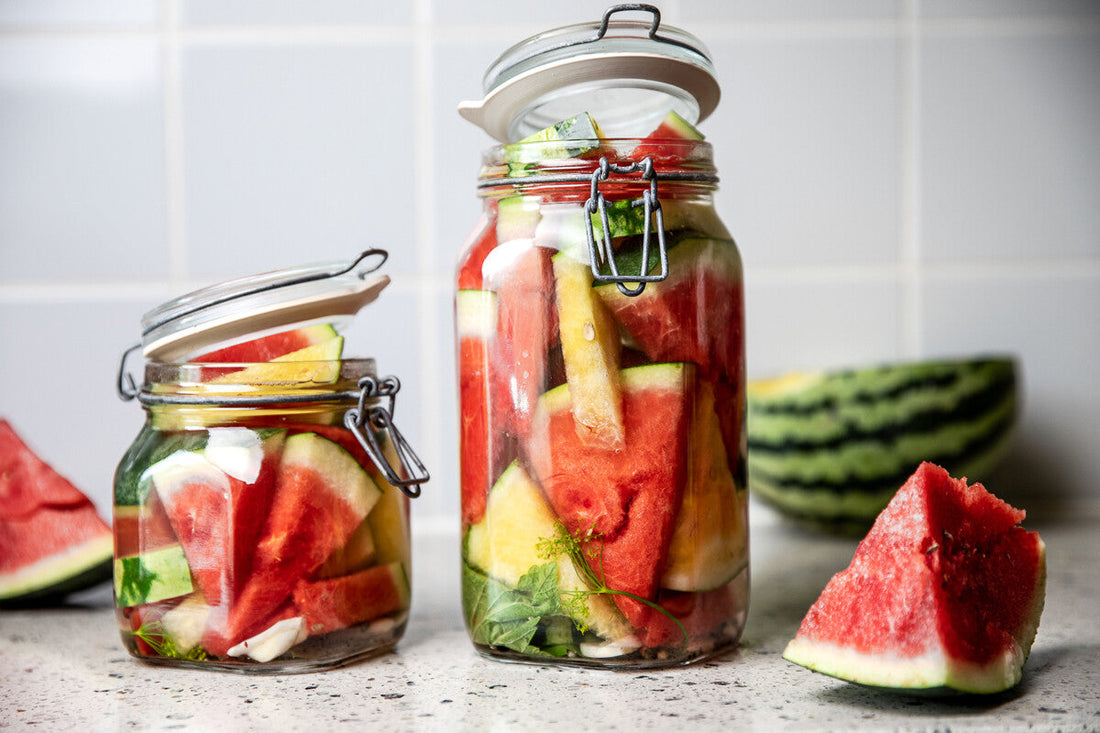
How to make Russian Watermelon Pickles
Prepare the watermelon. Cut pieces the size and shape that suits you. Peel, or leave on
the peel. The biggish wedges may stay crisper if you leave the skin on. They can be
trimmed down before serving if you like. Place the watermelon pieces into your
fermenting jar adding some allspice, bay leaves, black peppercorns, celery, dill and
garlic as you go.
To make brine. Estimate how much brine you will require to cover your watermelon
pieces. Dissolve salt into filtered water. You will need 18- 25g of salt per 500 mls of
filtered water*
Make sure your watermelon pieces are submerged under the brine and close lid of your
jar. For such a ferment it would not be necessary to use a jar with an airlock. Our
Fermenting Hold ‘em Downs or Viscodiscs work really well to hold the watermelon
slices under the brine. Leave to ferment. By 24 hours you’ll likely see some bubbles and
maybe some frothy foam. In warm weather, it normally takes 2 or 4 days for the
transformation to occur. Deciding when to move the batch to the fridge to slow down
the pickling process is a matter of taste.
Russian watermelon pickles should be served icy cold. Dip them from the brine right
before serving so they’re plump and juicy, or serve from a bowl along with some brine.
Pickles will keep for a month or two. After a week or 10 days their crunch factor
diminishes and texture becomes softer and denser, at the same time, flavour
becomes more complex. Finding the balance between the texture that suits and
the flavour you like is a matter of personal taste. When planning to serve watermelon
pickles for a specific meal it is recommended to start a batch 3 to 5 days ahead so they
can be chilled a day or two.
Don’t throw away the brine from this ferment – it is delicious to drink.
*If you plan to keep your watermelon pickles in the fridge for some time the higher
amount of salt (ie. 5% brine) is recommended. If you will consume within days you
may prefer to use slightly less salt (i.e. 3.5% brine).
